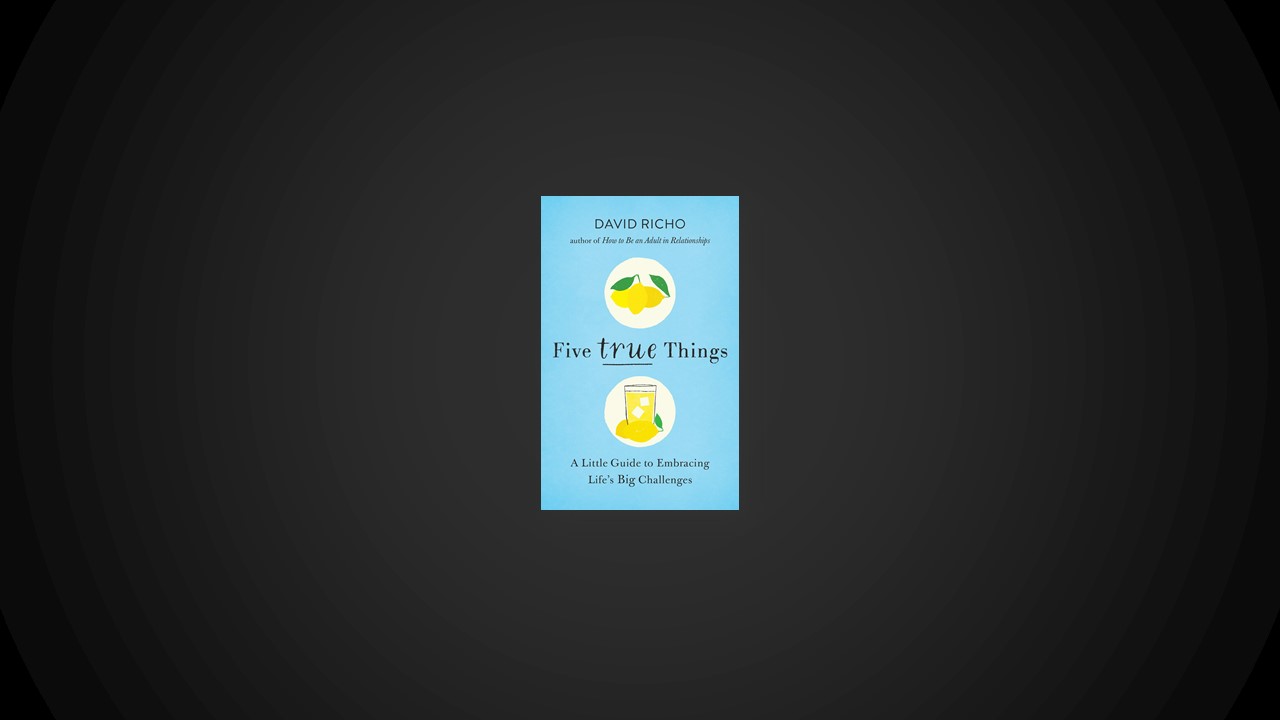Everything Changes and Ends
Facing the bluntness of reality is the highest form of sanity and enlightened vision…. Devotion proceeds through various stages of unmasking until we reach the point of seeing the world directly and simply without imposing our fabrications…. There may be a sense of being lost or exposed, a sense of vulnerability. That is simply a sign that ego is losing its grip on its territory; it is not a threat. —CHÖGYAM TRUNGPA RINPOCHE
The first given of life is that changes and endings are inevitable for any person, relationship, enthusiasm, or thing. Nothing is perfect, permanently satisfying, or permanently anything. Everything falls apart in time. Every beginning leads to a finale. Built into all experiences, persons, places, and things is a life span. Our relationships pass through phases, from romance through struggle to commitment. Then they end with death or separation.
When we welcome life’s givens, we welcome reality. The unconditional yes is hospitality to life in any guise in which it visits us. In the book of Genesis, Sara and Abraham gave hospitality to three strangers, unaware that they were angels. In Greek mythology, Philemon and Baucis were hospitable to two passersby, Zeus and Hermes in disguise. Thus hospitality can reveal the divine in the unknown. A welcoming yes reveals and alerts us to the spiritual world. To say yes to reality is to host eternal assistance. We find out, to our immense surprise, that a yes to reality enlists the assisting forces that have helped every hero and heroine.
Meister Eckhart wrote: “Everything is meant to be let go of that the soul may stand in unhampered nothingness.” Imagine the depth of spiritual consciousness in that statement. It can be ours as well as his. First we look at everything about us and around us and say: “All this will go.” Then we contemplate ourselves without all we cling to and say: “I want to be unencumbered. I want to be purely no-thing. I want to stand in the full nakedness of yes.”
Things Do Not Always Go According to Plan
For all that has been: Thanks! For all that shall be: Yes! —DAG HAMMARSKJÖLD, MARKINGS
We make plans expecting to be in control of what will happen. Perhaps we fear natural happenings, things turning out contrary to our wishes. We are challenged by life’s “mind of its own” to let go of having things come out our way. This is about control. We may act with precision, and self-discipline, expecting the world to follow suit and grant us our reward.
Perfect discipline, or perfect control, is the best way to miss out on the joy of life. The unruly givens of life are permissions not to be perfect. We can flow into the natural chaos of life—so untidy, so unpredictable—or we can try to order life fully by making careful plans. But as Robert Burns says to a mouse: “The best-laid schemes of mice and men oft go astray and leave us naught but grief and pain for promised joy.” We know now that a yes to life is a yes to grief and pain, since all the conditions of existence represent losses and disappointments. Yes is a healthy response to the human condition.
To grow into adulthood means that we accept the givens of life as they are, and this helps us accept ourselves as we are. Being an adult means living with life’s conditions in an allowing way
Things are not always as we would like them to be, nor do plans always work out our way. The fact that we are not in control means that the proper bearing for life on the raft of this floating world is surrender to what is as it is, how it is, when or where it is. We can fight with all our might for what can be changed, but only surrender works with what cannot be changed. The fact that we are not in control and that things happen that we neither sought nor planned means that there are forces at work bigger than our egos. This given is thus an intimation of divinity, as Ralph Waldo Emerson says: “So nigh is grandeur to our dust.”
Life Is Not Always Fair
The Law of life lives in him with his unreserved consent. —MIRCEA ELIADE
Life is not always fair and neither are people, ourselves included. Sometimes we are taken advantage of. Sometimes we do all the right things and wind up losing. Sometimes we act cautiously and are nonetheless hurt. Others may be generous to us and yet we take advantage of their kindness. Or we may act with good intentions toward others and yet our efforts go unappreciated or are misinterpreted. The third given challenges our ability to grieve for the losses associated with unfairness.
The challenge is to meet our losses with loving-kindness, the commitment to act and think lovingly toward others, especially when they test our patience or act hurtfully toward us. Cultivating loving-kindness when people treat us unfairly or hurtfully helps us by keeping our hearts open in and through the moment of being hurt. Openness does not mean we let ourselves be victims of abuse. We simply allow ourselves to be what we are at our most loving—that is, vulnerable.
It is a given of the gene pool Homo sapiens to live on the default setting of retaliation. It takes a spiritual practice to override this natural impulse. We have to customize our ego and undo the factory settings. The primitive ego’s favorite sport, retaliation, is the opposite of not giving up on others. To take revenge opposes the teachings of the buddhas and saints. What is the spiritual practice that works? It is loving-kindness: a mindful yes, compassion, understanding, a belief that all humans are redeemable, and a commitment to reconciliation. Loving-kindness frees us from the retaliatory instinct of ego.
Pain Is Part of Life
For our heart to yield without revolt to the hard law of creation, is there not a psychological need to find some positive value that can transfigure this painful waste in the process that shapes us and eventually make it worth accepting?…Dark and repulsive though it is, suffering has been revealed to us as a supremely active principle for the humanization and the divinization of the universe. —PIERRE TEILHARD DE CHARDIN
A given of life is that there is a cost to everything, and suffering is part of that cost. This given is stated in the first noble truth of Buddhism, which is often translated as “Life is suffering,” or “Life is unsatisfactory.” Another way of stating this truth or given is that pain is not a punishment, and happiness is not a reward. They are simply features of any existence.
We suffer physically, psychologically, and spiritually and we grow in those same ways. Suffering seems to be an ingredient of growth during every phase and on every threshold of our development. Yet suffering is not a device used by some power in the sky to make us grow. It is not a trip to the woodshed. It is not imposed but rather built into the very nature of change, another mystery that the ego keeps dismissing.
We learn to handle whatever happens to us not only through our work on ourselves. In childhood we attached ourselves and our trust to the caregivers who nurtured and protected us. Our parents watched out for us so that we did not have to face more than we could bear. They could not be successful every time, however. Safety for us as adults does not mean we will not be hurt or not die. It means we will accept and seek out the support of others and do all we can on our own and then allow life to unfold on its own terms.
People Are Not Loving and Loyal All the Time
For we must be clear that to live or love only where one can trust, where there is security and containment, where one cannot be hurt or let down, where what is pledged in words is forever binding, means really to be out of harm’s way and so to be out of real life. And it does not matter what is this vessel of trust—analysis, marriage, church, or law, any human relationship. —JAMES HILLMAN
Sometimes people keep their promises and sometimes they do not. Sometimes people love us loyally and faithfully, even unconditionally. Sometimes they hate, reject, abandon, or betray us. An adult has learned to take all this in stride. We feel the pain, but it does not devastate or destabilize us. We receive love with openness and appreciation. We receive loyalty with gratitude. We handle betrayal with the strength we gained from our psychological work. We let go of retaliation and act with compassion thanks to our spiritual practices. We do not want to be so strongly affected by what others do that we lose our own ability to love, which is all that matters to us now.
Some people will like us; some will dislike us; some come through for us and some betray us; some care tenderly about our feelings and some trample them underfoot. Accepting this variety as a given makes it less likely that we will let the reactions of others determine our personal worth. Our spiritual practice is a straight-forward yes to the full spectrum of human responses we will encounter in our lifetime. This delivers us from having to feel bad about ourselves or to make others wrong for not loving us. No human being was ever loved or treated respectfully by everyone. That has to settle in as a simple fact of life. Then we mindfully notice others’ reactions to us and go on loving and respecting others no matter what. Our capacity to love survives unscathed.
Our spiritual practice of loving-kindness toward all beings helps us join this tougher skin to a tender heart. This is how hurts help us find our own potential for unconditional love and unconditional compassion. People do things that injure us, but later we realize that was how they pushed us through a gate in ourselves that we never guessed was there. The hurt we felt was the sensation of being pushed.
We may distinguish two kinds of hurt: intentionally inflicted and naturally consequential. For example, a given of entering a relationship is that either partner can end it. Intentional hurt happens when people leave us in a cruel and thoughtless way. This leads us to feel sorrow, and in spiritual consciousness, we feel this pain without a plan to retaliate. Consequent hurt happens as the natural and inevitable result of events and reasonable choices. For example, our partner ends our relationship in a kind and respectful way. We both tried our best but the relationship was not meant to be. We feel hurt, but this is consequent hurt, not intentional hurt, and it leads to grief and moving on.


